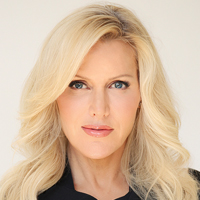
By now, it shouldn’t surprise anyone to learn that women face different healthcare challenges in retirement than men. Because they are more frequently in caregiving roles, they may spend fewer years in the work force, placing them at a disadvantage for accumulating savings and investments to cover the costs of retirement, including healthcare.
And because women statistically live longer than men, they are more likely to have the types of healthcare needs that accompany advanced age. In fact, 61% of women ages 50 to 64 report “having a chronic health condition that requires regular monitoring, medical care, or medication,” according to a recent report from the Kaiser Family Foundation.
According to the Women’s Institute for a Secure Retirement (wiserwomen.org), “a 30-year-old healthy woman will, on average, pay $118,632 more for health care over her lifetime than a man.” Specifically, that 30-year-old woman will live to an average age of 91 and spend $548,098 on health care, compared to a man who can expect to live, on average, to age 87 and spend $429,466.
Furthermore, in 2018, the median annual income for women age 65 and older was $20,637, compared with $36,370 for men. Bear in mind that 55% of women 65 or older are widowed, divorced, or never married. But at the same time, these women will typically spend twice as many years in a disabled state as men of the same age — an average of 2.8 years if they are 65 or older, and 3 years if they live past 80.
Women Can Allay Their Fears With Better Planning
Studies indicate that women are acutely aware of the problem. In a recent poll conducted by the Harris organization, 75% of women listed “health care costs going out of control” as a chief fear for retirement. This means that responsible advisors may expect to find female clients eager to learn about how they can avoid the drain of excessive healthcare expenses during retirement.
Subscribe (Minimal 2024)
"*" indicates required fields
The good news is that there are steps that women can take to prepare for the extra burden that healthcare costs can place on them in their later years. Here are three things you can do to help your female clients successfully manage the longevity gap and have adequate resources to cover those extra healthcare costs:
-
Encourage clients to start saving early.
This is just common sense, but it bears repeating. A woman in her early to mid-40s can invest a little extra now and, with growth and compounding, fund the additional health care costs she may face in retirement, due to her longer lifespan. A man in his mid-40s can invest a little over $41,000 today and expect to be able to pay for the retirement healthcare he is likely to need. A woman of the same age would need to invest a bit more than $46,000. However, according to a release from HealthView Services, “Small steps now can make a big difference in bridging the women’s longevity gap.” That extra $5,000, invested today, could provide an additional $200,000 during her retirement, offsetting almost all of her likely additional health care expenses.
And women have options for how they choose to save. While boosting contributions to an IRA or 401(k) is great, some people prefer to establish a health savings account (HSA) for assets allocated specifically for healthcare. But the point is, encouraging women to put a little extra money aside earlier in life can help them eliminate worries over health care costs in retirement.
-
Reinforce the long-term value of better self-care.
Here, too, is more common sense. Good health habits now can translate into lower health care costs in women’s later years. While it is true that some of us did better in the genetic lottery than others, each of us can make healthy decisions about diet, exercise and taking the advice of our physicians that will produce dividends in well-being for years to come. For advisors, this means looking beyond the financial reports and account statements and encouraging female clients to engage constructively with their own healthy lifestyle habits.
-
Help clients thoroughly understand their options for Medicare and Medicare supplements.
Medicare is the No. 1 health benefit for most retirees, but the coverage structure is complicated. Not only that, but studies have shown that many seniors, including women, tend to be overly complacent about understanding and exercising their options for Medicare and Medicare supplemental coverage. Statistically, only about a third of seniors shop for the best deal in Medicare coverage.
Clearly, this is an area where a trusted advisor can be of tremendous help, especially since surveys have shown that women are 29% more likely than men to find the process of reviewing and comparing plans to be “painful and frustrating.” As trusted advisors, we have a responsibility to coach our female clients about the ins and outs of Medicare coverage, helping them negotiate which Medicare supplement insurance plan is best for them as they transition to retirement.
Additional Reading: LTC-Insurance Extra Challenging for Women
Discuss Options While There is Still Time to Act
Each woman brings her own particular needs, resources and vulnerabilities to her decisions around planning for healthcare costs in retirement. Our value as fiduciary advisors, then, depends on understanding the unique challenges and needs of women in retirement, with regard to their healthcare costs. We must clearly communicate those challenges and what can be done to address them — and we need to do it while there’s still enough time to enact a solution.
Kimberly Foss, CFP, CPWA, CFT-I candidate is president and founder of Empyrion Wealth Management™ and author of Wealthy by Design: A 5-Step Plan for Financial Security. She combines a technical expertise with a real passion for her work with her clients, including family stewards, women in transition and thriving retirees. Kimberly regularly shares her financial expertise with leading media outlets.







